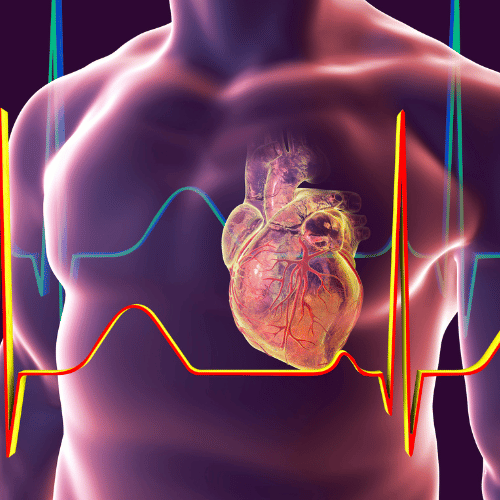
Medical Weight Loss Explained
A lot is said about medical weight loss but we are here to debunk the myths for you.

Find Out More


An ECG, or electrocardiogram, is a simple test that monitors your heart’s rhythm and electrical activity.
It is used diagnostically to determine if you have any heart issues and can be conducted at our clinic by one of our cardiologists or trained specialists.

An ECG test takes only a few minutes, and you can resume your normal activities immediately afterwards. It can also be performed while you are using a treadmill or exercise bike (stress ECG) or while you go about your daily activities (ambulatory ECG), allowing the heart to be assessed under different conditions.
The type of ECG recommended will depend on your symptoms, such as whether they are triggered by physical activity or occur more randomly. Our experienced specialist cardiologists can perform these tests in the clinic, if appropriate, to diagnose the cause of any symptoms you may be experiencing.
An ECG is a non-invasive diagnostic test that records the electrical activity of the heart over a period of time. During an ECG, electrodes are placed on specific areas of the body, typically the chest, arms, and legs. These electrodes detect and record the electrical impulses generated by the heart.
The data collected is then processed by an ECG machine, which produces a detailed graph reflecting the heart’s electrical activity. By translating these electrical signals into a graphical representation, an ECG provides valuable insights into the heart’s rhythm, function, and overall health.


An ECG is usually suggested if you are experiencing symptoms of a heart problem, such as chest pain (angina), palpitations (where you feel your heartbeat very strongly), dizziness, and shortness of breath. Conditions it can diagnose include:
An ECG test can be instrumental in various scenarios, including:
Use our online booking engine or book your test by giving us a call.
On the online booking engine select the “appointment type” you need.
You will be seen by one of our friendly doctors or trained clinicians.

It is best to avoid caffeinated drinks and foods before your appointment, as caffeine can affect your heart rate. Choose clothes that allow easy access to your chest area, such as a loose-fitting top or shirt. Let us know if you are taking any medications or if you have any pre-existing conditions. Unlike some tests, you do not need to fast before an ECG.

An ECG test usually takes about 5 – 10 minutes. You will lie down comfortably while electrodes are placed on your chest, and the machine records a graph of your heart’s rhythm. It is important to relax and stay still during the test, as movement can affect the results.

You can resume your normal activities immediately after the test. Our medical professionals will review the results and provide you with a detailed explanation. They will discuss any findings and recommend further steps if necessary. If needed, your doctor may schedule follow-up tests or appointments based on the ECG results.
Incorporated
in 1998
Experienced doctors & a professional team
Registration
not needed
Up-to-date with the latest treatments & testing
Strictly
confidential
Experienced doctors & a professional team
Affordable private
health care
Transparent fee structure with no hidden charges
We work with experienced consultants & healthcare professionals who have received positive feedback from our patients, and with whom we have established long-term relationships.
Latest Episode
Tune in to our podcast to explore the world of healthcare and learn from distinguished special guests. We cover everything from preventative measures to cutting-edge treatments so that you can stay informed and up-to-date on health-related things.

A lot is said about medical weight loss but we are here to debunk the myths for you.

Tourist in London and need a GP? Get fast, private care for illnesses, injuries, or lost medication. No registration needed.

With NHS appointments harder to access, many people are turning to private GPs for faster, more convenient care.
Subscribe for latest updates & news


From same-day private GP and blood test appointments to visa medicals, a sexual and reproductive health clinic, and preventative health screenings, we are here to help.
Contact Us
Accepted Insurance Companies






Please note that Walk-in Clinic is a private medical centre & not an NHS service. Harley Walk-in Clinic Ltd company registration no. 07472804